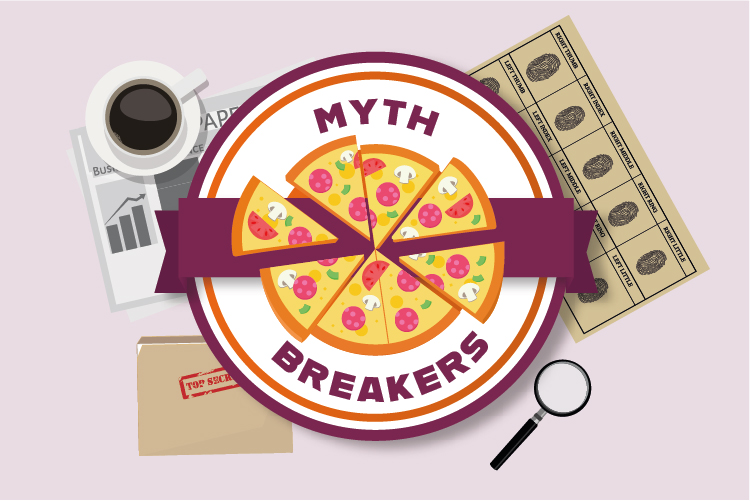Does carb-loading really help you run a marathon?
- Like
- Digg
- Del
- Tumblr
- VKontakte
- Buffer
- Love This
- Odnoklassniki
- Meneame
- Blogger
- Amazon
- Yahoo Mail
- Gmail
- AOL
- Newsvine
- HackerNews
- Evernote
- MySpace
- Mail.ru
- Viadeo
- Line
- Comments
- Yummly
- SMS
- Viber
- Telegram
- Subscribe
- Skype
- Facebook Messenger
- Kakao
- LiveJournal
- Yammer
- Edgar
- Fintel
- Mix
- Instapaper
- Copy Link
Posted: 1 September 2021 | Dr Adam Carey | No comments yet
In the latest edition of Mythbreakers, Dr Adam Carey asks whether carb-loading can be beneficial to consumers, and offers important advice around choosing sports nutrition products that are upfront about their ingredients.


Regular exercise and a balanced diet: they indisputably go hand-in-hand to achieve a truly healthy lifestyle. However, the myriad of information and respected resources out there are muddled together with misinformation and myths – especially online – making it harder than ever for consumers to make informed nutritional choices. Whilst the sports nutrition industry has successfully conveyed the message that the right nutrition is key for attaining peak performance and maintaining this healthy lifestyle, it is also working hard to debunk the most common myths about sports nutrition.
Among others, a decades-old sports performance-based nutrition strategy which is surrounded by misinformation is carbohydrate-loading. The concept of carb-loading was developed in the late 1960s and early 1970s by Swedish scientists to help athletes improve their performance.
Its concept lies in increasing the amount of carbohydrates stored in the body, as carbohydrates are an important source of energy when exercising. The body stores carbs in the form of glycogen and in certain types of exercise fatigue can occur when glycogen levels get low.
Sportspeople use carb-loading, adjusting their diet and exercise, before activities that require high level of endurance, like running a marathon. There are various versions of the carb-loading diet and today the most common is the one that combines zero exercise and a high consumption of carbohydrates for one day followed by high intensity exercise.


Is carb-loading the secret to Eliud Kipchoge’s success?
Since the 1960s, there has been a lot of research on carb-loading and now there is plenty of information available online. Yet, it is not uncommon for people who choose this diet to make mistakes, follow misleading information from unreliable sources and buy products that do not actually help them, or even worse, can be bad for their health.
Some common mistakes in carb-loading diets are consuming too much fat or fibre and not knowing the exact amount of the consumed carbs. Thoroughly checking the nutritional information on food products that are used in carb-loading is essential to avoid these mistakes.
A food which online sources usually recommend for the carb-loading diet is pasta. But consumers should be aware that choosing pasta with creamy sauces results in the increase of unnecessary fat. It is needless to say that having more fat that the body needs not only makes the carb-loading diet ineffective, but it is also detrimental for overall health. Likewise, eating too much fibre should be avoided in carb-loading diets to make sure stomach discomfort does not occur.
As for specialist food products, as the European Specialist Sports Nutrition Alliance (ESSNA) has explained via its consumer education campaign, when sportspeople buy carbohydrate drinks and, in general, sports nutrition products they should always choose the ones that list all their ingredients and their quantities. Also, ESSNA’s kitemark helps the public identify products belonging to ESSNA members. ESSNA members sign up to its strict Code of Conduct, making a promise to consumers that all their products comply fully with the European legislation put in place for their protection.
On its consumer website, ESSNA stresses that sports nutrition consumers interested in competitions and engaging in high endurance activities should check the claims made on the labels of products that they buy and avoid products that promise dramatic results. If the claims sound too good to be true, they almost definitely are. Legitimate and approved claims on carbohydrate drinks, to date, include reference to benefits such as contribution to the maintenance of endurance performance during prolonged endurance exercise and enhanced absorption of water during physical exercise. A full list is available on the EU’s and the UK’s respective websites.
Another issue on which sportspeople need to be well informed is the type of exercise for which the carb-loading diet can be effective. According to studies, this diet can be beneficial for exercise lasting more than 90 minutes. Research has shown that carb-loading is not beneficial for shorter length exercises as well as for weight training and other activities related to short bursts of activity. Adjusting the amount of exercise when following a carb-loading diet is also vital. Failing to decrease the exercise in accordance with the related diet programme may limit the storing of the desired glycogen in the body.
Sportspeople, especially beginners, often find it difficult to tailor their diet to their exercise. Guides from credible sources are quite helpful to address this. For instance, ESSNA has released a pre, during and post exercise guide. This guide explains the importance of nutrition and the value of supplementation, how sportspeople should time their nutritional intake to their exercise routine, what kind of nutrients the body needs before, during and after exercise and what sports nutrition consumers should keep in mind when selecting the right products.
As current public health issues in Europe, such as obesity and comorbidities (type 2 diabetes, cardiovascular disease, cancer etc.), as well as the COVID-19 pandemic have demonstrated, exercising and following a healthy diet is more important than ever. Today, more and more Europeans decide to lead healthy and active lifestyles and are interested in expanding their knowledge on how best to achieve this. Diet strategies and workout programs that were once used mostly by athletes have now become mainstream.
Yet, there is a lot of misinformation online that misleads sportspeople in their effort to stay physically active and healthy. Successful initiatives, like the ESSNA consumer education campaign, that work to tackle this problem and have gained the consumers’ and public policy’s trust have shown how important it is for the food industry to address this challenge, integrating it in its public relations activities.
About the author
Dr Adam Carey is the Chairman of the European Specialist Sports Nutrition Alliance (ESSNA), the trade association representing the interests of the sports nutrition sector across Europe.









